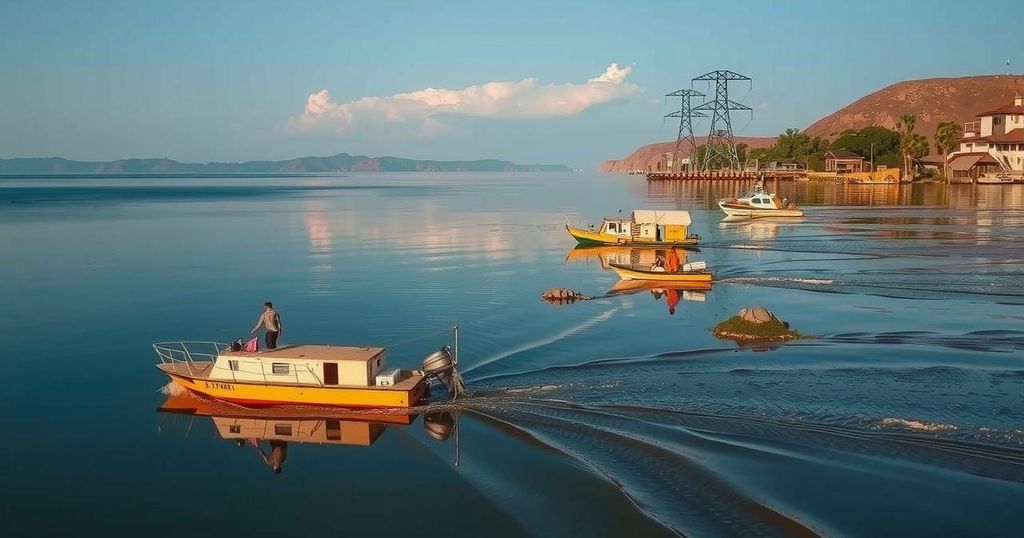Lake Kariba faces severe water depletion due to drought, affecting power supply in Zambia and Zimbabwe. Prolonged dry spells have led to extensive power cuts, with socio-economic effects particularly severe. The crisis emphasizes the need for diverse energy sources as both nations accelerate the development of alternative power plants alongside hopes for timely rains to alleviate the situation.
A severe drought has significantly depleted Lake Kariba, the largest artificial lake globally, jeopardizing the electricity supply for both Zambia and Zimbabwe. Extended dry spells, intensified by the El Niño phenomenon, have resulted in severe power outages, affecting electricity availability for up to 21 hours per day in Zambia and 17 hours in Zimbabwe. Consequently, the diminishing water levels have compelled the power stations within the dam to restrict electricity generation. Currently, only one out of six turbines on Zambia’s side remains operational. This crisis underscores the pressing necessity for both nations to diversify their energy sources. In response, both Zambia and Zimbabwe are expediting plans to develop coal and solar energy plants, aiming to enhance energy security. Although meteorological forecasts predict a normal rainy season for Zambia, officials remain hopeful for early rainfall to mitigate the ongoing power supply issues as economic growth projections for both countries are being adjusted downwards.
Lake Kariba, created to harness the Zambezi River, serves as a critical hydroelectric power source for Zambia and Zimbabwe. The current drought, exacerbated by climate changes related to the El Niño weather pattern, has dramatically reduced the lake’s water levels. Consequently, the capability of hydroelectric power stations has been severely compromised, leading to extensive electricity rationing and significant socio-economic implications for both nations. As both economies grapple with decreased productivity due to prolonged power shortages, there is an increasing urgency to explore and invest in alternative energy solutions.
The ongoing drought affecting Lake Kariba poses a significant threat to the power supply in Zambia and Zimbabwe, raising alarms about economic stability in both countries. With power cuts reaching up to 21 hours daily, there is a critical need for diversification in energy resources. The current challenges underscore the importance of investing in renewable energies, such as solar, to create a more resilient energy infrastructure. Stakeholders hope for favorable climatic changes to restore normalcy in power supply and economic growth.
Original Source: www.africa.com






